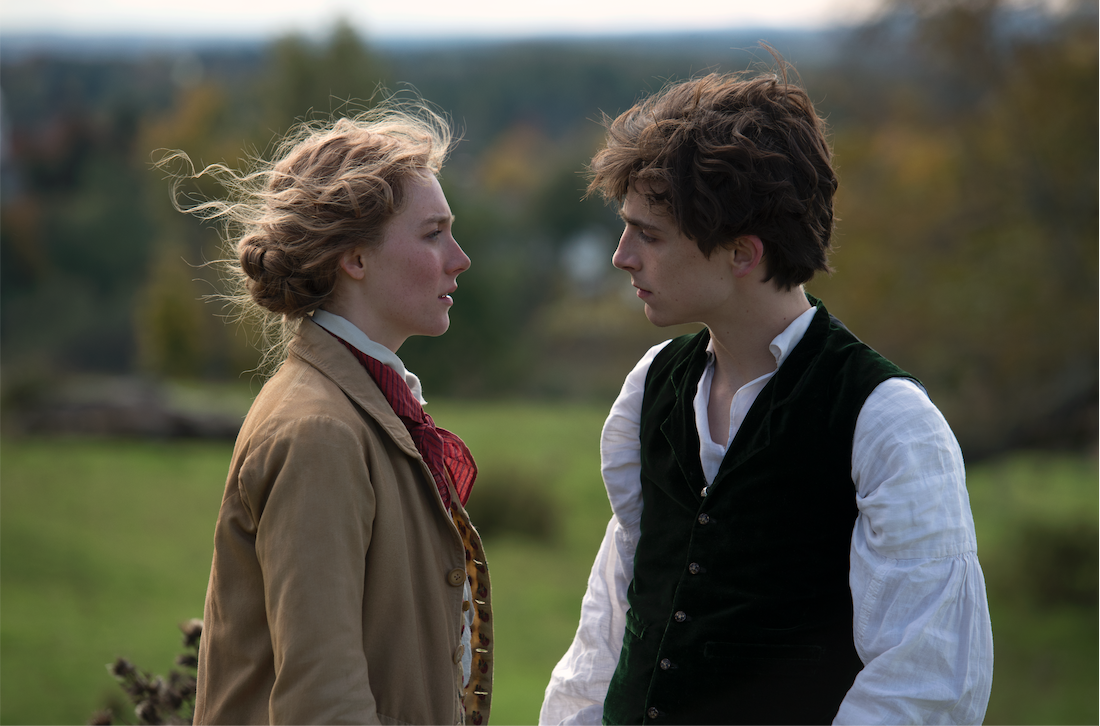'Little Women'
It’s almost always a delight when the March sisters pay a visit, and this time they have a new friend, Greta Gerwig, who seems to understand the dreams and desires of Jo, Meg, Beth and Amy better than nearly anyone.
Yes, there have been many movie adaptations of Louisa May Alcott’s classic novel “Little Women” — 1933 with Katharine Hepburn, 1949 with June Allyson and Elizabeth Taylor, the rightly acclaimed 1998 version with Winona Ryder, even a modern-day adaptation filmed in Utah and released last year. All those speak to the durability of Alcott’s story, and the enduring love for these luminous characters.
Gerwig, as writer and director, pulls off the difficult trick of showing these characters in their time but also informing our era — both in female empowerment and the changes in storytelling conventions.
While most adaptations follow Alcott’s largely linear narrative, Gerwig jumps first into the book’s later passages, when Jo March (Saoirse Ronan) is living in New York, writing short stories for the newspaper, for a publisher (Tracy Letts) who will pay more if the stories are particularly gruesome. Jo shows her writing to Prof. Bhaer (Louis Garrel), an academic who lives in the same boarding house — but he’s unimpressed with these stories, because he doesn’t see Jo’s personality in them.
What drives Jo? That we see in flashbacks, to seven years before, and the traditional start of the story. Jo lives with her sisters — Meg (Emma Watson), the oldest; Beth (Eliza Scanlan), the kindly middle child; and bratty Amy (Florence Pugh) — and their mother, Marmee (Laura Dern), in a snowy Massachusetts town. The family is scraping by with less, with Mr. March off working as a medic with the Union troops in the Civil War.
Poverty means small sacrifices, like not having a new dress for the holiday party thrown by their well-to-do neighbors. It’s at this dance where Jo first meets Theodore Laurence (Timothée Chalemet), aka Laurie, the grandson of the rich Mr. Laurence (Chris Cooper) who lives next door. Laurie becomes fast friends with the March girls, helping Meg through her first debutante ball, flirting with the too-young-to-get-it Amy, and connecting shy Beth with his grandfather, who is cheered when Beth comes over to play on his long-dormant piano.
Gerwig slides effortlessly between the two timelines — the winter in Massachusetts, and Jo’s life in New York — with one informing the other, the memories of the distant past feeding Jo’s writing of the less-distant past. What was a bold move, altering the narrative line of a classic, becomes a natural and obvious choice, because the approach breathes new life into Alcott’s familiar high spots.
For example, Beth’s bout of scarlet fever is telegraphed a bit more, but the impact is no less devastating to the sisters and Marmee. And the resolution of Jo and Laurie’s story becomes a cliffhanger that leaves us breathless to the end.
Gerwig and her team — full marks to cinematographer Yorick Le Saux, film editor Nick Houy, production designer Jess Gonchor and composer Alexandre Desplat — soak the movie in a million little details of 19th century life, that feel both authentic and lively.
And Gerwig is blessed with a dream cast, with co-conspirator Ronan (who starred in Gerwig’s “Lady Bird”) bringing out all of Jo’s drive and coltish exuberance. Watson and Scanlan fill out their comparatively thankless roles beautifully, as does Chalamet as the lovestruck Laurie. Dern and Cooper add adult gravitas, and Meryl Streep scores some laughs as the imperious matriarch, Aunt March. But the scene-stealer is Pugh, who plays Amy at two different ages — the impulsive pre-teen and the burgeoning woman — and aces them both. (Really, after this, the wrestling comedy “Fighting With My Family” and her horror turn in “Midsommar,” just this year, is there anything Pugh can’t do?)
It’s always been assumed that Alcott was writing about her own childhood, so Gerwig nudges that idea just a bit further, incorporating some of Alcott’s story into Jo’s — while also delivering a meta-critique of storytelling expectations, then and now. Here, Gerwig pulls off her finest trick, by delivering exactly what “Little Women” needs to be in a way that’s as fresh and alive as a spring meadow.
——
‘Little Women’
★★★1/2
Opens Wednesday, December 25, in theaters everywhere. Rated PG for thematic elements and brief smoking. Running time: 134 minutes.
